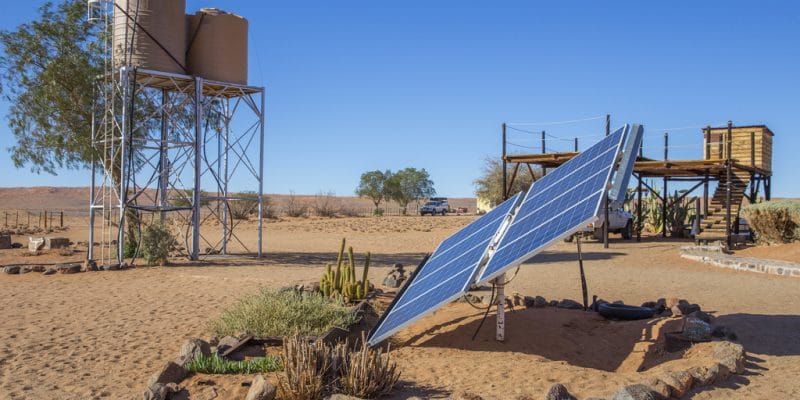The Nigeria Electrification Project (NEP) will be supported by the African Development Bank (AfDB). The pan-African financial institution has just approved a $200 million budget dedicated to rural areas.
The Board of Directors of the African Development Bank (AfDB) Group has approved a USD 200 million loan for Nigeria. The investment is intended to support the Nigeria Electrification Project (NEP), implemented as part of the Nigerian Government’s 2017-2020 Economic Recovery and Growth Plan. The AfDB-supported part of the project is aimed at rural areas where access to electricity remains low. In several African countries, the most effective policies to facilitate access to electricity in villages currently revolve around the off-grid.
To illustrate this new direction, Nigeria’s Ministry of Energy has disconnected from the national power grid to adopt a solar off grid. Supplied by Proserve Energy Services, it produces 750 kilowatts of electricity, which is then sold to the Ministry at a much more affordable price than the grid.
The project was therefore entrusted to the Rural Electrification Agency (REA). This organisation, which is part of the Nigerian Ministry of Energy, is currently pursuing a policy that encourages private sector investment. “Given the limited amount of public financing available, projects that catalyse private sector investment are essential to enable the AfDB and its regional member countries to achieve their common goal of electrifying the continent over the next decade,” said Amadou Hott, AfDB Vice-President in charge of Energy, Climate Change and Green Growth.
AGTF’s investment
NEP is an ambitious project that will be implemented over time and will require investments. The African Cooperation Fund (AGTF) has decided to support the project with a loan of $50 million. Nigeria also needs direct investment from companies working on the field to provide electricity to villages.
It is the case with the British company Azuri Technologies, which is currently working on a partnership with Niger Delta Power Holding Company (NDPHC), with an objective to provide mini-grids to 20,000 households. The families will pay their bills on the “pay-as-you-go” system, a pay-per-use payment, thanks to “mobile banking”, which is highly developed on the spot and in several African countries.
The reorganisation of investment procedures in the energy sector could also be of interest to Bboxx, another British company specialising in the supply of mini-grids powered by solar energy. It is currently examining several African countries, not hesitating to join forces with major groups such as Electricité de France (EDF).
Jean Marie Takouleu







